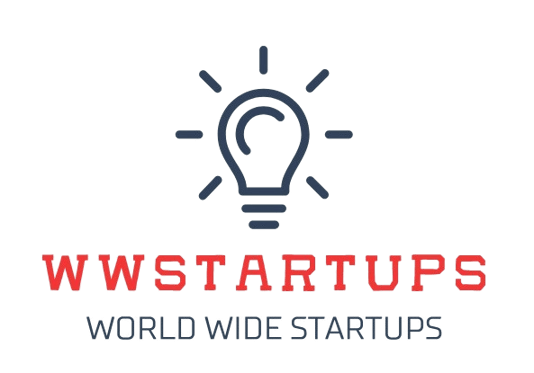The wwArchitecture startup could be an integral part of World Wide AI Solution (wwai.solutions), focusing on revolutionizing architectural design and construction through AI, sustainability, and smart technology. Here’s a detailed overview of what wwArchitecture could entail:
1. Core Mission and Vision
Mission: To design innovative, sustainable, and intelligent architectural solutions that integrate cutting-edge technology, reduce environmental impact, and enhance the quality of life for people and communities.
Vision: To be a global leader in AI-driven architecture and urban planning, setting new standards in design, sustainability, and smart infrastructure.
2. Product and Service Offerings
wwArchitecture could offer a wide array of services for clients, including:
Smart Building Designs: Creating residential, commercial, and industrial buildings equipped with IoT systems, automation, and energy-efficient technologies.
Sustainable Urban Planning: Providing eco-friendly design and urban planning solutions that consider energy consumption, green spaces, and resource optimization.
Digital Twins and Simulations: Leveraging AI and 3D modeling to create digital twins for buildings and city planning, allowing simulations of environmental impact, structural integrity, and energy efficiency.
Building Information Modeling (BIM): Using BIM to streamline the construction lifecycle, from design to maintenance, improving collaboration and minimizing costs.
AI-Powered Design Tools: Developing custom tools for architects that use AI to optimize designs, ensuring both aesthetics and functionality.
Construction Automation and Robotics: Implementing robotics and automation to enhance efficiency and precision in construction processes, reducing waste and labor costs.
3. Technology Stack
AI and Machine Learning: Tools for design optimization, material selection, and predictive analytics in urban planning.
IoT and Smart Sensors: Integration of IoT devices for real-time monitoring of building systems (HVAC, lighting, security, etc.).
3D Modeling and BIM Software: Leveraging software like Revit, AutoCAD, and custom AI-driven modeling tools.
Cloud-Based Platforms: Cloud solutions for remote collaboration, project management, and data storage.
AR/VR for Visualization: Using augmented and virtual reality for immersive architectural walkthroughs and client presentations.
4. Industry Focus
Residential Construction: Designing smart homes that prioritize energy efficiency, comfort, and sustainability.
Commercial Real Estate: Developing office spaces that integrate smart technologies to enhance productivity and reduce operational costs.
Urban Infrastructure: City planning projects that focus on sustainable infrastructure, traffic management, and green spaces.
Educational and Health Facilities: Constructing efficient and user-centric spaces that meet regulatory standards and offer enhanced environments for learning and healthcare.
Retail Spaces: Creating optimized layouts and customer-centric environments for retail establishments, using data-driven insights.
5. Target Clients and User Base
Real Estate Developers: Offering innovative design and planning services that incorporate smart technology and sustainability.
Government and Municipalities: Collaborating on city planning, public infrastructure, and smart city projects.
Corporate Clients: Developing intelligent and sustainable office environments that support employee well-being and operational efficiency.
Educational and Healthcare Institutions: Providing tailored designs that enhance functionality and compliance with safety standards.
Homeowners and Residential Builders: Offering custom smart home solutions that emphasize energy savings and modern design.
6. Revenue Model
Project-Based Fees: Charging fees based on the complexity and scope of individual projects, especially for custom architectural designs.
Subscription Models for Digital Tools: Offering subscriptions to digital twin and BIM tools for architects, engineers, and construction firms.
Licensing of Proprietary AI Tools: Licensing AI-driven design and optimization tools to third-party firms.
Consulting and Advisory Services: Consulting fees for sustainable urban planning, smart city initiatives, and green building projects.
Revenue from Digital Twin Services: Monthly or annual fees for clients to access, update, and manage digital twin data.
7. Competitive Advantage
AI-Driven Design and Optimization: Leveraging AI to create designs that optimize space, energy use, and environmental impact.
Sustainability Expertise: Focusing on eco-friendly materials, green building practices, and low-impact construction methods.
Smart Building Integration: Providing turnkey solutions that incorporate IoT devices and automation for seamless building management.
Client-Centric Customization: Offering flexible designs tailored to meet the unique requirements of each client and project.
Digital Twin and Simulation Capabilities: Utilizing digital twins to allow clients to visualize and simulate building performance, enabling informed decisions.
8. Potential Partnerships
Collaboration with Technology Companies: Partnering with tech firms to integrate the latest IoT, AR/VR, and cloud solutions.
Sustainability and Environmental Organizations: Working with green building councils and environmental organizations to ensure compliance with the highest sustainability standards.
Universities and Research Institutes: Collaborating on research and innovation in smart building technologies, green materials, and AI applications in architecture.
Municipal and Government Partnerships: Collaborating on urban planning and smart city projects to bring sustainable development to public infrastructure.
Construction and Engineering Firms: Partnering with established construction companies to facilitate large-scale projects and implement automation.
9. Growth and Scaling Plans
Expansion into Emerging Markets: Focusing on countries where urbanization is rapid and there is a growing demand for sustainable infrastructure.
Enhanced R&D in Green Architecture: Investing in research to discover and use advanced sustainable materials and energy-efficient technologies.
Scaling Digital Twin Services: Expanding digital twin offerings to cover more regions, enhancing capabilities for global clients to manage infrastructure remotely.
AR/VR Implementation for Sales and Design: Creating immersive experiences for clients to explore designs, strengthening customer engagement and approval processes.
Continual Upgrades to AI Design Tools: Regular updates to AI design tools to incorporate the latest in architecture trends, user experience, and sustainability metrics.
Potential Applications and Projects
Examples of potential projects and applications for wwArchitecture include:
Smart Homes and Buildings: Residential buildings equipped with energy-saving technology, air quality monitoring, and smart automation.
Sustainable Urban Spaces: Green parks, walkways, and public spaces designed to improve urban quality of life.
Energy-Efficient Commercial Buildings: Offices with automated lighting, climate control, and waste reduction systems to minimize operational costs.
Digital Twin Cities: Comprehensive digital representations of entire city districts for urban planning, infrastructure management, and real-time analytics.
Educational Campuses with Smart Infrastructure: Schools and universities equipped with automated lighting, smart classrooms, and energy-efficient facilities.
Through wwArchitecture, the World Wide AI Solution ecosystem can position itself at the forefront of intelligent, sustainable design, contributing to the creation of smart, livable spaces that are prepared to meet the demands of tomorrow’s cities and communities.


